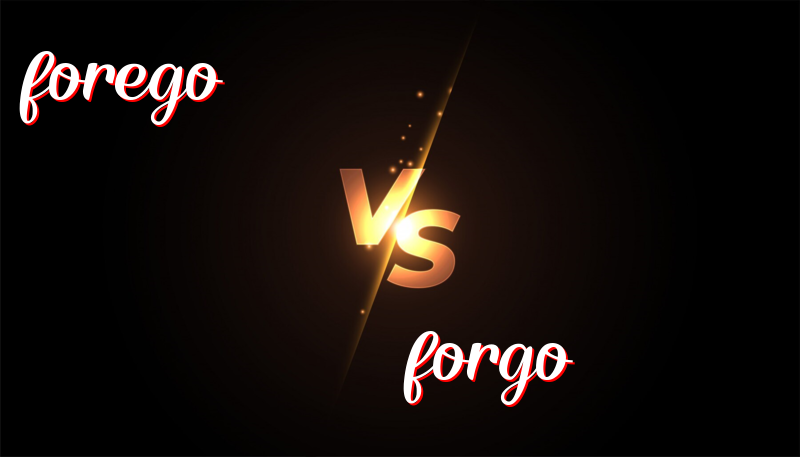Understanding the Difference Between Forego and Forgo
Forego vs. Forgo: What’s the Difference?
Sometimes in English, words look and sound very similar, but they mean different things. Two such words are “forego” and “forgo.” Let’s look at what they mean and how to use them.
What Does “Forego” Mean?
The word “forego” means to go before. It is often used in writing to talk about things that happen earlier or before something else. You might see “forego” when people talk or write about something that happened first. It comes from old English, and “fore” means before.
Examples of “Forego”
- The foregone days were simpler.
- Let us remember the foregone story.
- These facts forego our current knowledge.
- In the foregone era, people traveled by horse.
- The foregone conclusion was clear to all.
What Does “Forgo” Mean?
“Forgo” means to go without something or to choose not to have or do something. It means giving up on something usually enjoyed or wanted. “Forgo” comes from the word “go,” and when combined with “for,” it shows giving something up.
Examples of “Forgo”
- I will forgo dessert tonight.
- She decided to forgo the trip to save money.
- We forgo watching TV to go for a walk.
- They chose to forgo the extra charge.
- He had to forgo his afternoon nap.
Trick to Remember the Difference
A way to remember the difference is to focus on the first part of each word:
- “Fore” in “forego” looks like “before,” meaning something that happens earlier.
- “For” in “forgo” is like “forget,” meaning you are letting go of something.
Summary
Remember, “forego” is about something that came before, while “forgo” is about giving something up. If you focus on the first part of the word, you can usually remember what each word means!

Leave a Reply
You must be logged in to post a comment.